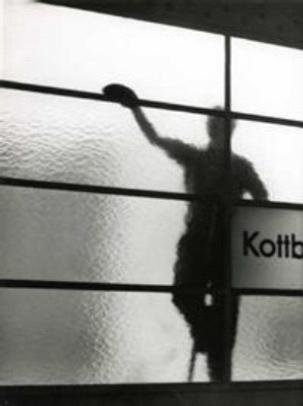Elsa Thiemann: Photographer
dal 25/2/2004 al 6/6/2004
Segnalato da
25/2/2004
Elsa Thiemann: Photographer
Museum fur Gestaltung, Berlin
A prevalent theme in her work at this time was portraiture, and one of her frequent subjects was Hans Thiemann, a student in Kandinsky's painting class whom she later married. Her contemporaneous designs for Bauhaus wallpaper patterns, which were based on photograms, are typical documents of the interdisciplinary approach at the Bauhaus

Bauhaus-Archiv Berlin in collaboration with Berlinische Galerie
Elsa Thiemann (1910-1981) is one of the less familiar names among Bauhaus photographers. She studied at the Dessau Bauhaus during the early 1930s under Walter Peterhans. A prevalent theme in her work at this time was portraiture, and one of her frequent subjects was Hans Thiemann, a student in Kandinsky's painting class whom she later married. Her contemporaneous designs for Bauhaus wallpaper patterns, which were based on photograms, are typical documents of the interdisciplinary approach at the Bauhaus.
After completing her studies in 1931, Elsa Thiemann started to work in Berlin as a freelance photographer and photojournalist. Due to her inner opposition to the Nazi regime, she concentrated her work during the following years on neutral subjects such as daily life in the streets of Berlin. In the process, she avoided any kind of political statement - National Socialism is almost completely absent from her pictures. As seen before this backdrop, Thiemann's striking photographs of Berlin after its destruction seem like a commentary on the irretrievable loss of a previous world.
Not until the postwar period did Elsa Thiemann return to portrait photography. She created a portrait series of artists who were affiliated with the Rosen Gallery, and who had mostly worked in private during the years of National Socialist rule - including her husband, Hans Thiemann. As Berlin began to flourish again during the 1950s, her images of the city demonstrated an eye for the anecdotal, particularly with regard to her direct residential surroundings in Neukölln. Always critical of her own work, Thiemann retained very little: the photographic negatives in her estate fit into a single shoebox.
The Bauhaus Archive exhibition shows approximately 100 photographs from the years between 1930 and 1960 - the majority of which are vintage prints - as well as Bauhaus wallpaper designs. This is the first monographic presentation of Else Thiemann's life work, which has been underrepresented until now.
The catalogue is being published by the Verlag Kupfergraben, with 72 pages and 71 illustrations. It can be purchased for EUR 6.- at the Museum desk, mail order Euro 9.- plus postal charges.
Bauhaus-Archiv / Museum für Gestaltung
Klingelhöferstrasse 14 D - 10785 Berlin
Opening hours daily 10:00 a.m. - 5:00 p.m., closed Tuesdays



